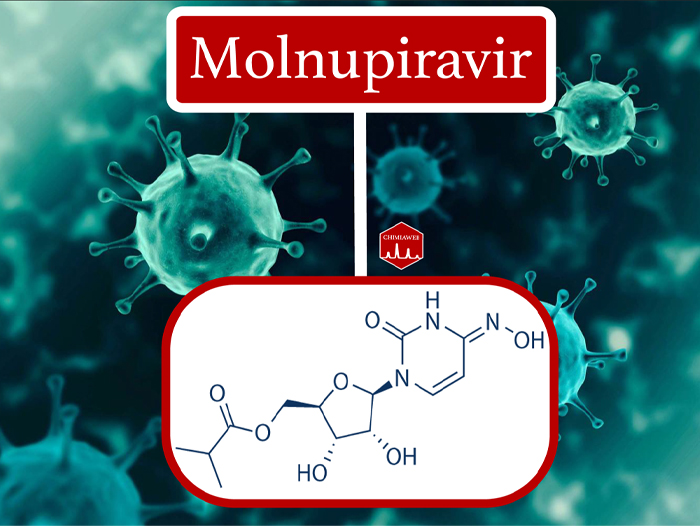The coronavirus pandemic (COVID-19) continues to pose a challenge to healthcare systems worldwide. Several therapeutic drugs, such as remdesivir, favipiravir, ivermectin and hydroxychloroquine were used to battle the disease. They have been tested for their potency and safety of antiviral effects.
Clinical trials showed partly therapeutic effects for some of the above-mentioned drugs, but there was not enough evidence for their approval in the treatment of COVID-19. More definitive therapeutics were still needed to reduce the progression of coronavirus disease 2019 (COVID-19). So studies continued.
On December 2021, the US Food and Drug Administration (FDA) authorized two novel oral antiviral drugs for COVID-19. The oral antiviral pills were Paxlovid, manufactured by Pfizer, and Molnupiravir, developed by Merck. The obtained trial results indicated that the drugs significantly reduced the risk of hospitalization or death.
The simple structure of molnupiravir makes its synthesis and manufacturing easy. It can be expected that a simple manufacturing process may reduce the cost of the marketed mulnopiravir and make it most widely available in the future. Here is a look at the molecular mechanism by which molnupiravir acts against COVID-19.
Molnupiravir is a prodrug, which becomes activated by metabolization in the body. This chemical compound is a nucleoside analogue. Nucleosides, as biological molecules, are building blocks for the synthesis of RNA and DNA. Chemically, molnupiravir is the isopropylester of N-hydroxycytidine (NHC). NHC is an analogue of cytidine (one of the main nucleosides).
The virus of COVID-19 disease is called SARS-CoV-2. When the virus enters the body, it seeks for the cells of the respiratory system. Once it has attached itself to the host cell, it enters it. Inside the host cell, the virus begins to replicate its genome, which is an RNA. These copies are then formed into complete viruses, which leave the host cell and spread around the body to infect other cells.
When molnupiravir enters the virus-infected cell, NHC is metabolized to an active form of NHC triphosphate. NHC triphosphate is incorporated into the RNA synthesis of virus as a building block. What happens is that NHC triphosphate is substituted for a cytosine triphosphate by mistake. Thus, the resulting RNA contains deleterious errors for the next round of viral replication. This occurrence of defective genetic material is called mutation. The viruses with mutant RNA can no longer reproduce, and the population of viruses decrease.
To put it in a nutshell, molnupiravir acts as a lethal mutagen and causes SARS-CoV-2 a catastrophic error. This way, it stops the growth of the virus. The advantage of molnupiravir is that it is an oral pill, so it is more accessible, and can be taken at home. Nevertheless, scientists are still investigating molnupiravir’s efficacy against all versions of SARS-CoV-2, and also potential risks.

